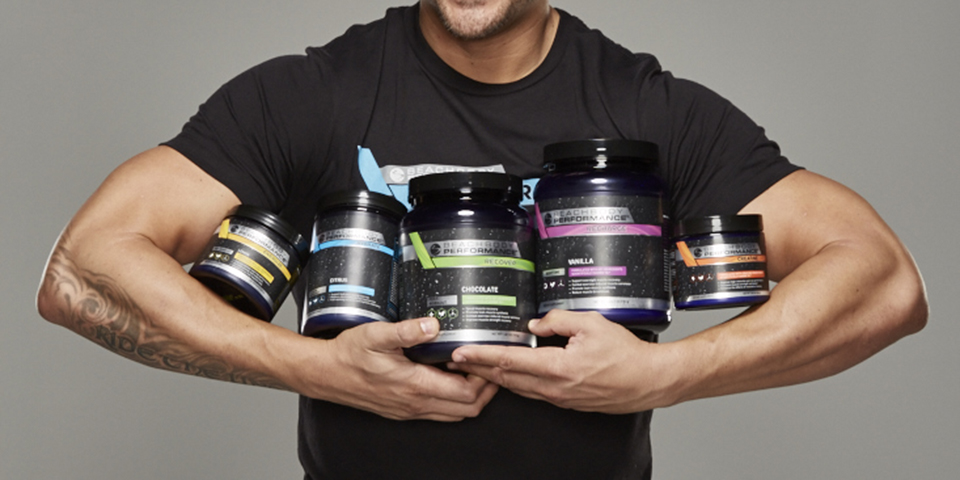The Science behind Supplements An Exclusive for Evolve Magazine
By: Bryce Wylde B.Sc. Hons., DHMHS
Are Supplements, and the Nutrients Found in Supplements, Studied Scientifically?
The simple answer is a resounding ‘yes!’. There are thousands of studies that have been done on a variety of nutrients found in supplements, including studies on vitamins, minerals, herbs, herbal compounds, amino acids, and many other ingredients. Sometimes, researchers also study the finished supplement formula itself — often as an investment into intellectual property related to a novel ingredient, an extraction method, or even delivery technology. While nutritional studies are published in many different journals, it is not uncommon to see clinical trials on nutrients or supplements, from leading research institutions, published in prestigious journals. When the studies are published in a journal, they go through a peer-review process, as in other scientific fields. This means the authors submit a study for publication, but before it is published, other researchers review the proposed study for methodology and clarity. The study’s authors then revise the paper based on the feedback before resubmitting it. The peer-review process is designed to minimize the publication of flawed science.
What Types of Studies Do Researchers Use to Investigate Supplements and Nutrients?
Researchers use a wide range of study types to investigate supplements and nutrients. These studies include research on cell cultures (called in vitro), animals, and, of course, humans (called in vivo). When it comes to human studies, there are two main types—observational studies and randomized controlled trials (RCTs).
Observational studies track participant behavior, sometimes over decades, to look for correlations between what nutrients or foods participants consume and what diseases or symptoms they develop. While there are many kinds of observational studies, each with their own strengths and weaknesses, one of the advantages of an observational study is the ability to look at a large number of people (often thousands or tens of thousands) over long periods of time. However, the primary weakness of such a study is that it is only capable of showing an association between a nutrient and a disease or symptom, and cannot prove a cause-and-effect relationship between them.
This is where the RCT comes in. RCTs randomly divide participants into a treatment (supplement) group and a control (placebo) group. This generally gives researchers a higher degree of confidence that the observed effects are actually due to the treatment, and not to some other contributing factor. RCTs are considered the “gold standard” for all types of medical research. And, in fact, while RCTs make up only part of the available evidence on supplements, RCTs on supplements and nutrients in supplements likely number in the thousands.
Why Do Some People Claim That There Is No Evidence to Support Supplement Use?
People who claim there is no evidence behind supplements are most likely misinformed. There are many well-conducted studies on supplements that have found positive health benefits, and these studies follow the same methodological protocols and peer-review process as in other areas of medicine. So, it is not accurate to make blanket statements that supplements are not supported by science. It is true that there may be a lack of studies on specific supplement products, and on some particular nutrients, but this only means that more research needs to be done on these products and nutrients. It doesn’t change the fact that large amounts of evidence exist in support of some other nutrients. As one example of this, there are well over 25,000 studies done on the health benefits of omega-3 essential fatty acids alone.
Is the Research Behind Supplements All Positive?
The research behind supplements is just like the research on drugs and other medical treatments. Some studies support the use of certain nutrients for particular conditions while other studies may conclude that the nutrient is not effective and some studies may confirm that certain nutrients help in particular conditions but may not help in others. Some studies reveal adverse effects. The goal of nutritional research should be to sift through all the data and come to an overall conclusion about the usefulness of a particular nutrient. It is important to note that the existence of “negative” studies (those that find no effect or possibly even adverse effects) is a normal outcome in scientific evaluation. Negative studies do exist when it comes to supplements, but it’s very important to keep in mind that they also exist for drugs. This does not mean, however, that there is no science behind supplements, or that supplement research is not evidence-based, especially considering the many tens of thousands of studies that clearly demonstrate health benefits.
How Do I Know Whether Science Supports the Use of My Supplement?
The first step is always to check with a healthcare practitioner, and it is essential that the practitioner is knowledgeable about the science behind supplements. You can also feel confident with well vetted online practitioner-grade supplements offered by Fullscript. Many doctors receive surprisingly little training on supplement use and so their opinion is likely less useful compared to other doctors who have received such training. When in doubt, talk to your doctor about his or her views on supplements, what training he or she has received, and how often he or she uses supplements to help patients.
I attend many trade shows every year, many that are not open to the public. I am typically on the hunt for “Best in Show” based on a stringent criteria that I have developed. I use the acronym STEP2: Safety, Sustainability, Transparency, Traceability, Efficacy, Evidence, Potency and Purity. Every product or ingredient I’ve selected has passed all these criteria. In each case, one happens to really shine. Here are some recent finds that all pass scientific rigor.
Safety (Children’s Nutrition)
Not a lot of dietary supplement and functional food companies specialize in children’s nutrition. Genetics give you a range of how tall you may be, but nutrition determines where you fall in that range. Ensuring a child is nourished with the proper nutrients prior to puberty could impact their final adult height. What’s new for kids who may be a bit smaller than their peers are Healthy Heights shakes. They aren’t just extra protein or extra calories. These are based on the research and experience by Schneider Children’s Medical Center, the world-renowned experts for helping children achieve optimal growth.
Sustainability (Tocotrienols)
Millions of dollars in research have connected sustainably sourced tocotrienols — a form of vitamin E found abundantly in the oil palm fruit — with brain health. The latest preliminary studies tie tocotrienols with improved brain recovery after a concussion. While tocotrienols aren’t new, they remain a must-have nutrient and I was happy to see them represented at Expo West.
Transparency (Stress Busting)
Stress is one thing on everyone’s mind. KSM Ashwaganda has been clinically shown to help reduce stress and anxiety, and lower cortisol levels. Best of all, for those who tend to hit the fridge or pantry when they feel anxious, this may help relieve stress-related food cravings. BUT … what I’ve come to learn is that the American Botanical Council has recently warned about a rise in adulterated ashwagandha products that contain the dry leaf, which has different and undesirable active molecules compared to the roots, and is intended for topical application only. Look for the ingredient “KSM-66” on your supplement bottle as it is made by Ixoreal Biomed, which owns and controls its entire supply chain
Efficacy (Body-Ready Wellness)
More than 2,000 papers have shown that quercetin has wide-ranging health benefits including immune health, sports performance, antioxidant, cardioprotective, chondroprotective and allergy relief benefits. The problem has always been that it can be very bitter and poorly absorbed by the body. A new ingredient from Taiyo, SunActive IsoQ has solved both of those issues. It’s soon to be available at GNC and Vitamin Shoppe.
Evidence (Energy)
When it comes to evidence around boosting energy and metabolism, very few products measure up. We need to avoid stimulants and go for pure energy. Based on recent evidence, you’re going to be hearing a lot more about ingredients known as “AMPK boosters.” AMPK is an enzyme that helps balance energy consumption and production. As we age, our natural AMPK activity declines. Optimal AMPK levels at any age help ensure we have ideal metabolism. Evidence shows that a special ingredient called Bioenergy Ribose, widely available in consumer products, can naturally improve energy production as an AMPK booster.
Potency (New Nutrient Delivery System)
Jelly-like Smart Chews from ConCordix are popping up in numerous high-quality supplement lines, including Childlife Essentials. Unlike gummies, they dissolve easily in your mouth so they’re easier to swallow. Each chew holds the right amount of active ingredients (for example, 15 times more EPA/DHA than average gummies) and those nutrients are easier for the body to absorb.
Purity (Sports Nutrition)
The new Spartan product line is the next generation of sports nutrition, ideal for weekend warriors. Each product for such specific benefits such as immune support, energy and focus. Each also carries Informed Sport certification, confirming that the formulas are safe, and free of contamination and impurities. That’s important whether you’re an athlete who will be tested or a weekend warrior who wants a very clean product.
Personalized Immune Supplements – The Next Generation
Consumers are supplementing their diets more than ever before. But research shows they are very frustrated with the concept of one-size-fits-all, uncertain about ingredient quality, and tired of ridiculous claims. To see a practitioner in this space is very expensive and can involve extensive testing to get to a personalized nutrition solution.
Where personalized nutrition is a hot market, immune health is indeed the hottest topic given the worldwide developments in infectious disease. It’s an issue of constant concern and it will continue to be so indefinitely. Consumers intuitively understand the importance of maintaining a healthy immune system, but are unsure of the safest and most effective ways of how to achieve that beyond diet and exercise. Additionally, there is a significant barrier for the general public to access premium ingredients. Until now!
Mymmunity is an online, direct to consumer company, that combines personalized nutrition with a focus on supporting a healthy immune system. Mymmunity is the destination for personalized supplements and on a mission to offer a platform that empowers the wellness seeker to achieve optimal year-round immune health through personalized ingredients and precision dosing.
How we does it work? Mymmunity can assess your immune system deficiencies and gaps using a specially cultivated questionnaire without needing to use any instrument based diagnostic tools, and then automate a recommended custom formula using a comprehensive selection of immune specific natural ingredients based on your specific needs.
Mymmunity fulfills orders by compounding custom orders which means blending the recommended supplements into a single formula, at the right dose for that individual. This is based on a comprehensive algorithm that considers individual metabolism, not simply taking off the rack premade pills and placing them into packets. This is a very important and ground breaking evolution in this sector.
Find out what ingredients should be in your formula today and visit www.mymmunity.com











